How Does The Archetype Play Role In Your Personality
Real Reason Behind Your Behavior Find Out The Archetype That Influenced Your Actions
In this article, we try to share complete information about what is the real reason behind your behavior and how you can find out the archetype that influenced your actions. we hope that you will read completely to understand the real reason behind your behavior and find out the archetype that influenced your actions.
What's the real reason behind your behaviors? What's the archetype that influenced your actions and how does the archetype play role in your personality? Find out your archetype and how it influences your personality with this free personality test.
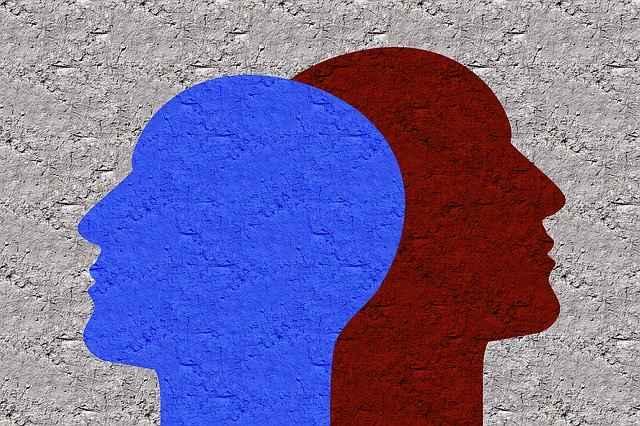 |
| What Is The Real Reason Behind Your Behavior - Find Out The Archetype That Influenced Your Actions |
A person's archetype is a universal, inborn model of their behavior, personality, and behavior with others. In Carl Jung's theory of personality, these archetypes are archaic forms of innate human knowledge passed down from generations past.
According to Jungian psychology, archetypes represent universal patterns and images that are a part of our collective unconscious. These archetypes are inherited much like instinctive behaviors, according to Jung.
Free Archetype Reading Reveals Your Personality Quirks, Innate Talents, And Hidden Weaknesses
An archetype is a model, or template, that represents a particular type of person or thing. It can be used to help you understand complex topics in an easy-to-understand way. For example, the archetypal figure of the hero is often used to teach children about difficult concepts such as courage and sacrifice. By comparing and contrasting different examples of heroes, students are able to develop their own understanding and intuition about these sorts of things.
what is the real reason behind your behavior and find out the archetype that influenced your actions?
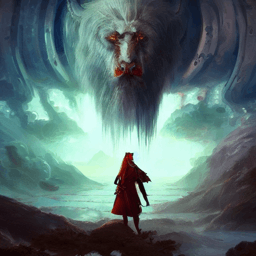 |
| What Is The Real Reason Behind Your Behavior - Find Out The Archetype That Influenced Your Actions |
Archetypes can also be found in other areas of life, such as relationships (the ideal partner) or work behaviors (the perfect employee). The usefulness of archetypes comes from the fact that they are universal - everyone experiences them to some degree throughout their lives.
There is no one right way to use archetypes - they can be helpful when learning new information, reducing stress levels during challenging situations, or enhancing your ability to think abstractly. The key is simply to experiment and see what works best for you!
The subconscious mind is a powerful force that can influence your behavior in ways you may not even realize. It's responsible for our emotions, thoughts, and actions - everything from how we feel about ourselves to the things we do around the house.
But how does it work? And why are some behaviors more straightforward to do than others?
The truth is that the subconscious mind is made up of three parts: desires, fears, and beliefs. These elements interact with each other constantly to create our reality. The stronger or more dominant a particular factor is in your life, the greater control it has over your behavior.
So what can you do to start understanding and using your subconscious mind more effectively?
First, pay attention to what motivates you regarding emotions (desires). Are there certain things that make you happy or upset? Once you know this information, it's easier to choose Responsible Actions That Satisfy You (fears) rather than Violent Escaping Behaviors That Cause Problems (beliefs).
Next step: try out new behaviors by experimenting with different desires and fears until something feels comfortable and satisfying. This will help increase awareness of how your unconscious thoughts impact your everyday life - no matter what those thoughts might be! What's the Real Reason Behind Your Behavior? - Find Out The Archetype That Influenced Your Actions.
What Role Do Archetypes Play In Personality?
The archetype is a fixed pattern of thought, feeling, and behavior that is common to people in a particular culture or group. The personality type is the actual individual who exhibits those patterns of behavior.
Archetypes play an important role in personality. They are patterns that weave together our memories, experiences, and thoughts into a cohesive story. These themes help us understand ourselves better and can influence how we react to different situations.
There are eight primary archetypes: the Hero Archetype, and the Jeopardy! Champion Archetype, the Rebel archetype, the Mastermind archetype, the Nomad archetype, the Pariah archetype, the Guardian Angel archetype, and The Trickster.
Each one has its own unique set of strengths and weaknesses. For example, rebels tend to be creative but unpredictable; masterminds are capable of great planning but can also be ruthless; nomads enjoy being on their feet but may have difficulty sticking with a regular routine or task; pariahs feel like they don't belong anywhere and often try to sabotage others in order to fit in; guardians angels work hard no matter what's going on around them; tricksters have a knack for making things happen even when it seems impossible.
The key is to identify which type of archetype you relate most strongly to - then you can start using that theme as part of your overall personal strategy
How Do You Think Archetypes Influence Our Thinking?
Archetypes are a popular topic of discussion and for good reason. They play an important role in our thinking, both consciously and subconsciously.
The unconscious mind is responsible for all the activities that take place outside of our awareness, such as day-to-day decision-making and habitual behavior. Our thoughts filter through this unconscious mind when we're processing information, forming opinions, or create emotions. This is why it's so important to be aware of how your thoughts are impacting your overall well-being...and the well-being of those around you!
Here are five ways archetypes influence our thinking:
1) Archetypal images reflect who we think we are (or want to be). When we see ourselves in familiar roles or situations, it helps us navigate life more easily by reminding us what to expect.
2) Archetypal stories fuel our imagination and creativity. By telling ourselves stories about hypothetical characters or events, we can explore new ideas more deeply.
3) The activation of archetypes leads to positive mental states like courage and blissful peace. When certain patterns trigger positive feelings within us, they have a powerful effect on our outlook on life
4) Archetypal images may also disguise negative aspects of self from view
5) As with anything else in life - practice makes permanent! Consistent exposure to an archetype over time will make it stronger - meaning that its impact will continue even after the original stimulus has gone away
How Do Archetypes Help Us?
Archetypes are a way of looking at ourselves that can help us understand our behavior. They are frameworks of thought that help us make sense of our experiences, and they are often the root cause of our actions. They are the things that we see over and over again in our life, and we take them for granted because they are part of who we are. We might call them our personal myths, and they can have a big influence on our behavior.
Archetypes are a part of our human nature. They help us navigate through life's challenges. They give us a sense of direction and purpose. They help us to understand the world and how we fit into it. They help us understand our relationships with others and with the world. They help us understand what we are capable of and how we can contribute to the world.
What Is The Effect Of Archetype?
The archetypes that we all carry around with us are inevitably going to have an effect on our behavior. Some of these archetypes might be positive and helpful, while others might be more harmful. In this article, we will be exploring the effect of an archetype on behavior and how to identify it.
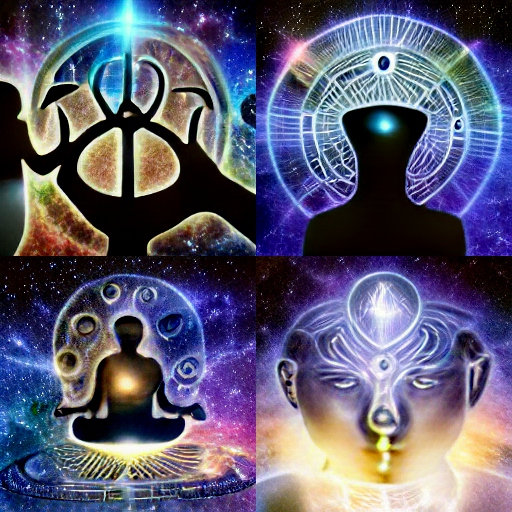
What Is The Real Reason Behind Your Behavior? - Find Out The Archetype That Influenced Your Actions
Archetypes are powerful forces in human behavior. They influence our thoughts, actions, and decisions. They are at the root of our motivations and drives. They are in fact, the reason we are who we are.
Archetypes are powerful constructs that can have a significant impact on our behavior. They are the foundations of our collective mythology, and they shape the way we perceive the world around us. Understanding the archetype that influenced your actions is the first step in understanding you're why. In this article, I'll explore the three most common archetypes and how they influence our behavior.
How Do You Connect With Archetypes?
The real reason behind your behavior can be found by understanding your archetypes. Archetypes are unconscious patterns that influence how you think, feel, and behave. They are the foundation of your identity and can be traced back to your earliest memories. They are the root cause of your habits and patterns of behavior.
You are an archetype. Archetypes are universal patterns that exist in every culture and throughout history. They are the building blocks of our lives. Archetypes are everywhere, but we don't always recognize them. They are the reason why we act the way we do. They are the force that drives our lives.
Archetypes are powerful forces that can influence our behavior in a number of ways. They represent a part of our personality or character that we often repress or ignore. If we can understand how our archetypes are influencing our behavior, we can start to make changes that will improve our lives. In this article, I'll explain how archetypes influence our behavior and provide you with a step-by-step guide on how to connect with them
Are Archetypes Important In The Development Of The Story With?
Archetypes are important in the development of the story. They are the hidden patterns that shape our lives. Archetypes are the underlying themes of a story, the guiding principles that govern a culture. Archetypes are everywhere.
Archetypes play a big role in the development of a story. They are symbols that represent aspects of a person or a culture. They can be used to explain why someone does the things they do and to predict the results of their actions. The three most common archetypes are the hero, the rebel, and the victim.
When we look at our lives, we can see that there are certain patterns that we follow. These patterns are called archetypes. Archetypes are unconscious patterns that influence our behavior. They are the foundation of stories that we tell ourselves.
Do archetypes play an important role in the development of the story? They are the patterns that we all follow unconsciously, and they can be seen as the building blocks of our personalities.
What Is The Most Common Archetype?
Behavior often reflects underlying archetypes that have influenced our development as humans. In this article, we will explore the most common archetype and how it can influence your behavior.
Most people behave in ways that are based on an archetype, or model of behavior. This model is often based on some personal experience or observation that the person has made. The archetype that influences your behavior is often based on something that you learned from someone else. Understanding the archetype that influenced your behavior can help you change your behavior and improve your life.
The archetypes that influence our behavior are rooted in our unconscious. By understanding and identifying these subconscious patterns, we can change the way we behave.
What is the real reason behind your behavior? In this article, we will be exploring the archetype that influenced your actions. More often than not, our behavior is based on an archetype. Archetypes are patterns that are found in many different cultures and across many different situations.
What's the real reason behind your behavior? Sometimes we do things without knowing why. In this article, we're going to explore the most common archetype that influences our actions. Are you an achiever?
How Do You Analyze Archetypes?
How do you analyze archetypes? To answer this question, we must first understand what an archetype is and how it works in our lives. An archetype is a fundamental, universal prototype of a person, object, or concept. In other words, it’s a model or original that serves as a basis for making copies.
Analyzing archetypes isn't as difficult as it may sound. Many people are familiar with the twelve archetypes of the zodiac and may be more familiar with their own archetypal influence than they realize. The first step is to identify the behavior that you want to analyze. After that, you need to ask yourself some questions about the behavior.
We do things for many reasons. Some we are aware of, some we are not. The archetype is one of those reasons that many of us are unaware of. Archetypes are patterns of behavior that we see in others and ourselves.
Archetypes are not a new concept in psychology. Archetypal analysis has been used by major psychologists, including Sigmund Freud and Carl Jung. Archetypes are often described as universal symbols, images, or motifs that have existed throughout history and across cultures. These symbols or images evoke deep emotional responses in individuals. We all have moments where we stop and wonder why we did something. You might have made an impulsive purchase, or refused to help a friend in need. Maybe you've even found yourself in a romantic relationship that you knew, deep down, was doomed to fail. But what was it that made you do it? Archetypes are a powerful way to understand why we do the things we do.
Which Is The Best Example Of a Character Archetype?
One of the most common questions we get is, "which archetype do I most closely resemble?" The answer is, "all of them!" Each of us has a unique blend of personality traits and life experiences that have shaped our individual personalities. We all have the potential to be great and make a positive impact in the world, but it takes time and effort to develop those skills. The next time you are considering which archetype you most closely resemble. Take a moment to think about your own personality traits and life experiences. If you are not sure which archetype you most closely resemble. You can take the personality test visit here for more information about What's the Real Reason Behind Your Behavior? - Find Out The Archetype That Influenced Your Actions
There are many different character archetypes that can be found in stories and literature. Some of the most common include the hero, the villain, the mentor, the love interest, and the sidekick. Which one of these do you think is the best example of a character archetype? The hero is the main character in a story. He or She is the one who is trying to achieve something great and is often accompanied by a mentor or sidekick.
The Villain is the character who is evil and tries to stop the hero from achieving their goals. The mentor is the character who helps the hero to achieve their goals and is often accompanied by a sidekick. The love interest is the character who is in love with the hero and tries to help them achieve their goals. I think that the most important thing to remember when thinking about a character archetype is that it is not always easy to be a hero or a Villanueva de la Vida de Una Mujer.
Which Character Archetype Is Defined As a Strong?
The Strong Character Archetype is one who is physically and emotionally powerful, reliable, and often sought out by others for their expertise and knowledge. The strong character archetype embodies the values of strength. This archetype is represented by the figure of Hercules. He is a symbol of steroids and is often seen as a symbol of physical power and strength.
The character archetype of the strong is described as someone who is in control of their life and will not let anything get in their way. This archetype is typically defined as being powerful, confident, and self-assured. The strong will not let anyone or anything dictate their life and will do whatever it takes to achieve their goals.
They are often seen as having a very strong sense of self, and will not be swayed by the opinions of others. They are seen as being very confident and have a great deal of power and strength. They are seen as being very reliable and will always be there for those they care about. The strong character archetype is very sought after by others and is often seen as a very attractive personality trait.
How Many Archetypes Do People Have?
The Archetype is a concept that has been around for many years and is present in many cultures and religions. The idea of the Archetype is that everyone has an individualized set of universal personality traits which are referred to as the "archetypes." These archetypes are divided into two groups: the Shadow Archetypes and the Persona Archetypes.
The Shadow Archetypes represent our instincts, desires, and needs which we try to keep hidden from others. The Persona Archetypes represent how we want to be seen by others and how we want to present ourselves to the world.
The archetype of the hero is someone who always has the answer and is always right. This archetype plays a major role in your personality and how many archetypes do people have? There are 12 archetypes:
- The Innocent
- The Orphan
- The Hero
- The Caregiver
- The Explorer
- The Rebel
- The Lover
- The Creator
- The Jester
- The Sage
- The Magician
- The Ruler
and There are five main archetypes that people fall into the hero, the protector, the caregiver, the scholar, and the peacemaker.
What Are The Female Archetypes?
The female archetype is a figure of speech that describes the various roles of women in society. The female archetype is a term used in popular culture and it is meant to represent women in their various roles in society.
These roles are often assigned to women by society and other people. The female archetype is a way to describe the different ways that women are portrayed in society. These archetypes can be used to describe how women are seen as mothers, wives, sisters, or daughters.
An archetype is a psycho what the body is to the mind, there are seven feminine archetypes that prevail in contemporary society
- The Mother
- The Maiden
- The Queen
- The Huntress
- The Sage
- The Mystic
- The Lover
Free Archetype Reading Reveals Your Personality Quirks, Innate Talents, And Hidden Weaknesses
How Do You Become a Hero Archetype?
A hero archetype is a cultural concept that has been around for centuries. The idea of a hero is someone who has a mission, is selfless, and is willing to put themselves in harm's way to protect others. There are different types of heroes, such as comic book heroes, movie stars, and real-life heroes.
In order to become a hero archetype, you have to live up to the standards of the hero you want to be. For example, if you want to be a comic book hero, then you have to have superpowers. If you want to be a real-life hero, then you need to go out of your way to help people and save lives.
To become a hero archetype, you must first have a strong sense of self-identity. This means being able to identify the values and principles that guide your life. Next, you must be able to put these values into action. For example, a hero archetype might believe in helping others, but they might not always want to help others with their problems. Instead, they might want to help others by volunteering at a soup kitchen or donating clothes to the homeless. Another hero archetype might believe in helping people by giving them hope for the future. They might start a charity organization or work for social justice.
The positive and negative effects of identifying your archetype
There are a lot of people who are looking for their archetypes. Archetypes are the different ways that people can identify themselves and what they want to do with their lives. Archetypes can be good or bad depending on the person. Some people might find that they have a perfect job and would like to spend their life doing it, but there are other people who don't feel like they fit into that kind of lifestyle and they would rather explore other options.
One of the negative effects of identifying your archetype is that it can lead to poor self-esteem. For example, if someone has an archetype of being a doctor, they might feel like they're not good enough because they aren't a doctor yet. The positive effect of identifying your archetype is that it can lead to motivation and self-improvement. If someone has an archetype of being a doctor, they might feel the need to go to medical school and become a doctor because they want to help people.
Every person has an archetype. It is the personality type that best defines them. The positive and negative effects of identifying your archetype are complicated. It can be a great tool to help you develop your strengths and weaknesses. You can use the information to help you identify what you like and dislike about yourself and how you could improve. It can also help you understand why people in your life behave the way they do.
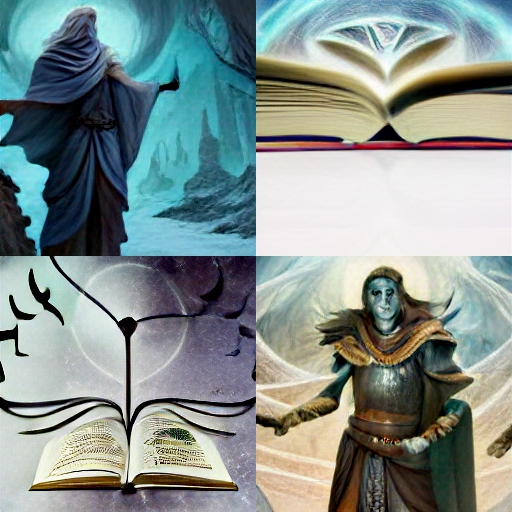
What Is The Real Reason Behind Your Behavior? - Find Out The Archetype That Influenced Your Actions
Archetypes are the spiritual patterns of human behavior that are present in all cultures and throughout history. They give us a blueprint for living, which can help us to make decisions and live life more effectively. However, when someone identifies their archetype they may find themselves struggling with the negative aspects of their archetype. This can lead to a lot of stress and worry, which may even cause physical illness. It is important to be aware of the positive and negative aspects of an archetype so that you can live your life in a balanced way.
Conclusion
We hope you enjoyed our blog post on finding out the archetype that influenced your actions and how the archetype plays a role in your personality. We found that there were many different archetypes that influenced our personality, which, in turn, influenced our behavior.
Depending on the archetype that influences your personality, you may engage in different types of behaviors. Some of the archetypes include Demi-Hero, High Priestess, and Victim. We hope that through this article, you will be able to figure out your own archetype and realize the role it plays in your personality!
Free Archetype Reading Reveals Your Personality Quirks, Innate Talents, And Hidden Weaknesses



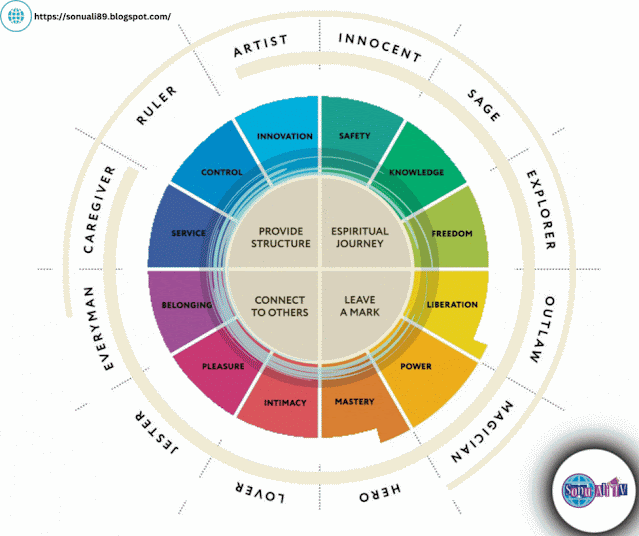

_11zon.jpg)

.jpg)







No comments:
Post a Comment